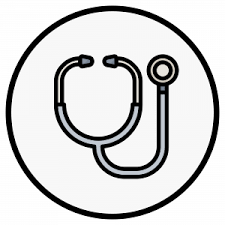If you are someone new to ICD10, you may be wondering about the code for PTSD. What exactly does it include? How do you use it? In this blog post, we will answer your questions and discuss the diagnosis method. We will also provide you with the benefits of PTSD ICD10. So, keep reading for more information!
Contents
Understanding PTSD ICD10
 PTSD is a mental health condition that can develop after someone experiences or witnesses a traumatic event. It is marked by persistent, distressing memories of the event, nightmares, and flashbacks. This condition can also lead to avoidance of anything associated with the trauma, as well as negative changes in mood and thought patterns.
PTSD is a mental health condition that can develop after someone experiences or witnesses a traumatic event. It is marked by persistent, distressing memories of the event, nightmares, and flashbacks. This condition can also lead to avoidance of anything associated with the trauma, as well as negative changes in mood and thought patterns.
The ICD10 is the International Classification of Diseases, 10th revision. It is a diagnostic manual that is used by healthcare professionals to diagnose and treat patients. The ICD essentially keeps a tally of all diseases and injuries globally, which is used by both medical practitioners to diagnose patients and researchers to study larger trends.
What Are Some ICD10 Codes For PTSD?
ICD-10 classifies mental disorders with codes that are a letter followed by a number. The letter represents the category of disorder while the number corresponds to the specific type within that group. So, for example, an individual with PTSD would be coded as F43.
The different types of PTSD symptoms can be classified as: F43.0, F43.21, F43.22, and F43.23 under ICD-10. Let’s discuss what each number represents:
- F43.0 is for a single trauma
- F43.21 is for repeated or prolonged trauma
- F43.22 is for acute post-traumatic stress disorder
- F43.23 is for chronic post-traumatic stress disorder
PTSD can also be classified as: 309.0, 309.81, and 309.89 under ICD-10
- 309.0 is for adjustment disorder with a depressed mood
- 309.81 is for adjustment disorder with mixed anxiety and depressed mood
- 309.89 is for adjustment disorder with other specified features
Not to mention, the ICD-10 codes are not only critical for mental health professionals but also for insurance companies and government agencies. That’s because these codes help monitor the spread of various disorders and make decisions about how much money should go into research and treatment.
How Can ICD10 Help You?
It is often said that knowledge is power. The ICD10 code for PTSD (posttraumatic stress disorder) is a way of giving you the power to understand your own mental health condition and to advocate for yourself when speaking with healthcare providers.
The ICD10 is a system used by medical professionals to classify and diagnose diseases and health conditions. There are several benefits of using ICD10 for PTSD, some of the common ones include:
Helps in accurate diagnosis
This is one of the most important benefits of using ICD10. PTSD can only be diagnosed if the correct criteria are met, and ICD10 provides a clear and concise way to ensure that the proper diagnosis is made. PTSD is often misdiagnosed as depression or anxiety, but the ICD10 code for PTSD ensures that patients receive an accurate diagnosis.
Provides a common language for professionals
It is important to have a shared language when discussing mental health. The ICD10 code for PTSD is a way to provide a common language for professionals. This can help with diagnosis and treatment, as well as communication between different professionals.
Appropriate treatments and therapies
When you are accurately diagnosed with the condition, it is further helpful to be aware of the ICD10 code for PTSD. This will help you in understanding what treatments and therapies are available, and which ones will be most appropriate for your individual case.
Better data for research purposes
Finally, the ICD10 code for PTSD will enable researchers to have more accurate data when conducting studies on the condition. This, in turn, can lead to a better understanding of the condition and how to best treat it.
So, you can see ICD10 is not just a simple code, but rather a complex system that will have a profound impact on the way we understand and treat mental health conditions like PTSD. If you or someone you know suffers from PTSD, be sure to ask your doctor about the ICD10 code and what it means for your treatment.
How Can You Manage PTSD?
 Well, it is important to be aware of the symptoms and get a proper diagnosis and treatment. But there are also some things that you can do to manage your PTSD on your own. Here are some tips:
Well, it is important to be aware of the symptoms and get a proper diagnosis and treatment. But there are also some things that you can do to manage your PTSD on your own. Here are some tips:
- Avoid alcohol and drugs: It is important to avoid self-medicating with alcohol and drugs when you have PTSD. Not only can this make your symptoms worse, but it can also lead to addiction.
- Get enough sleep: Sleep is important for both your physical and mental health. A lack of sleep can make your PTSD symptoms worse, so make sure to get enough rest.
- Exercise: Exercise can help to improve your mood and reduce stress. It is also a great way to get out of your head and focus on something else.
- Eat a healthy diet: Eating a nutritious diet can help your body to heal and repair itself. It can also help to boost your energy levels and mood.
- Connect with others: When you have PTSD, it can be isolating. Make sure to connect with friends and family members, or join a support group for people with PTSD.
- Talk to a professional: It is important to talk to a mental health professional if you are struggling to cope with your PTSD. They can help you to understand your diagnosis and develop a treatment plan.
PTSD is a serious condition that can have a major impact on your life. But with proper treatment and self-care, you can manage your symptoms and live a full and happy life. It is important to reach out for help if you are struggling to cope. There are many resources available to help you or a loved one with PTSD. You are not alone.
Conclusion
In conclusion, PTSD ICD10 can be a very debilitating and serious disorder. This is believed to be caused by a number of different factors, and the exact cause is still unknown. However, there are treatments available that can help people to overcome this disorder and live normal, productive lives.
If you or someone you know is suffering from PTSD ICD10, it is important to seek out professional help as soon as possible in order to begin treatment. With the proper care and support, many people are able to recover from this disorder and go on to lead happy and healthy lives.
For more information and guidance, do not forget to speak with a healthcare professional at Therapy Mantra. The earlier you seek help, the better it is for you. Contact us today to learn more about our services. You can also book an online therapy session or download our free Android or iOS app.


